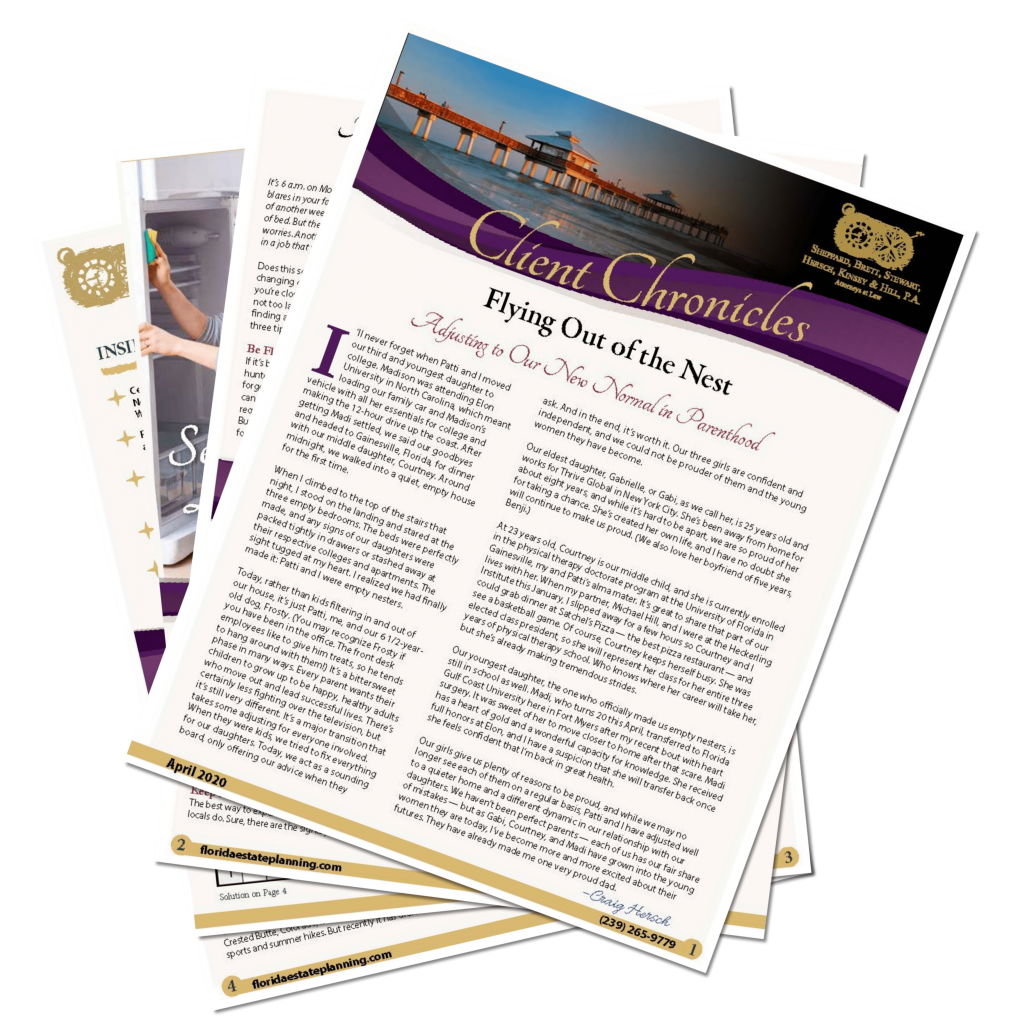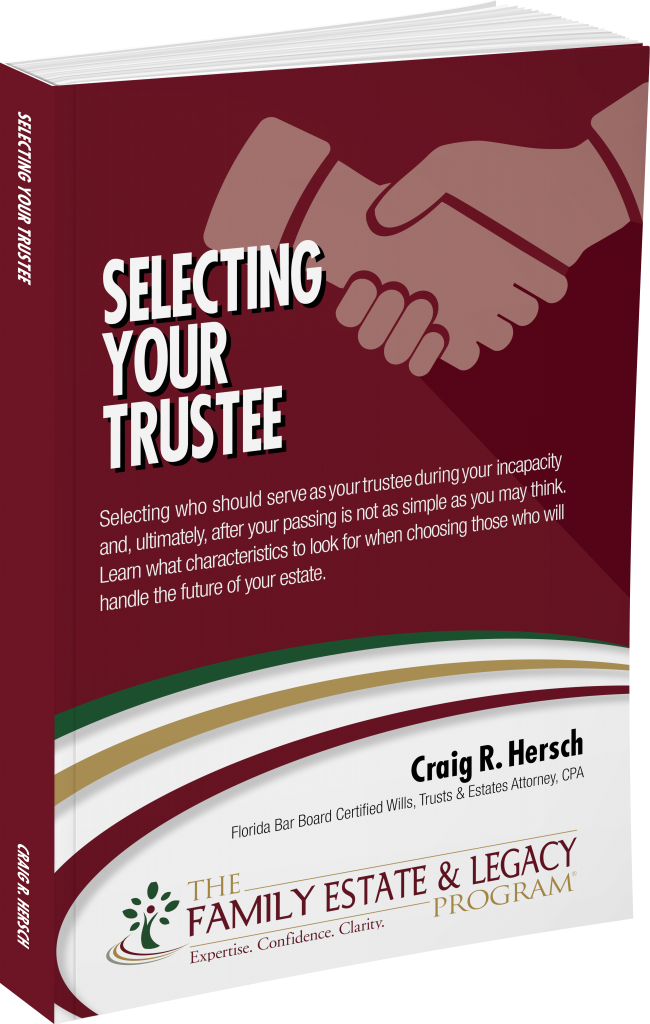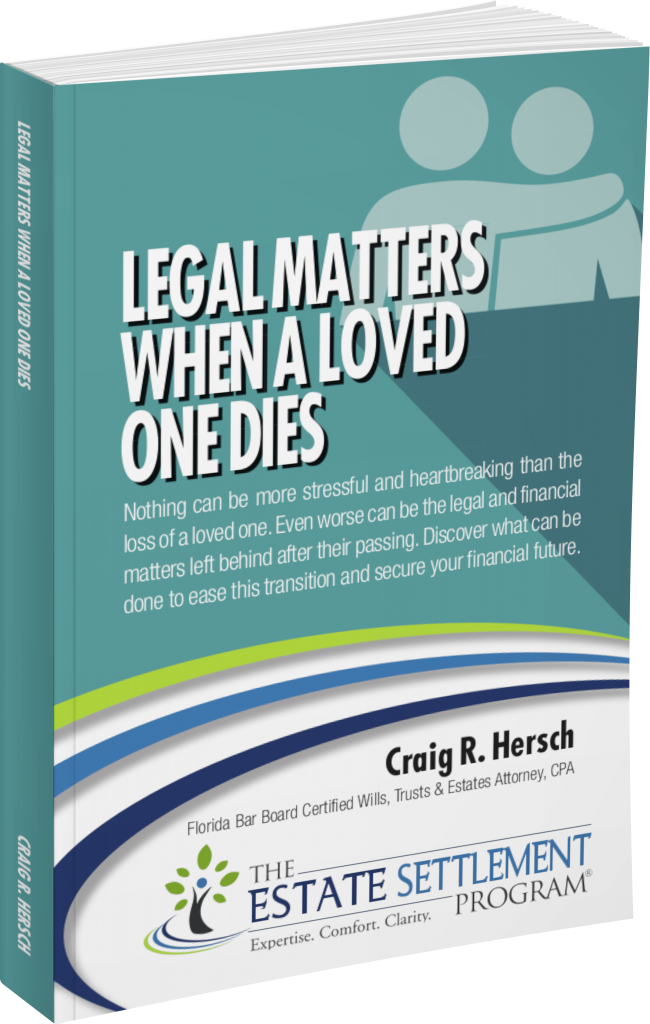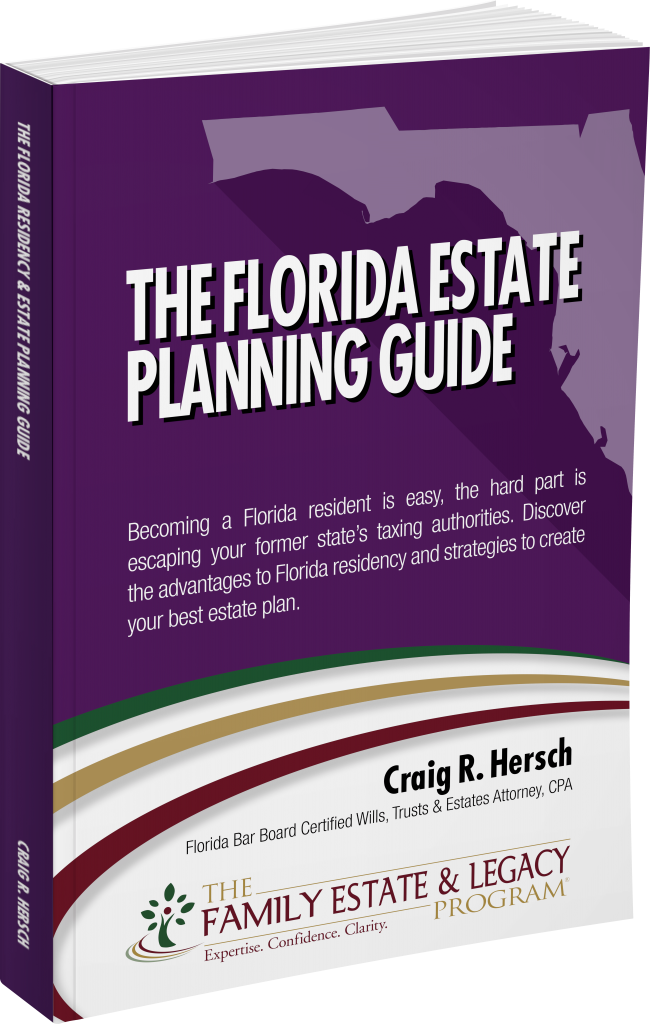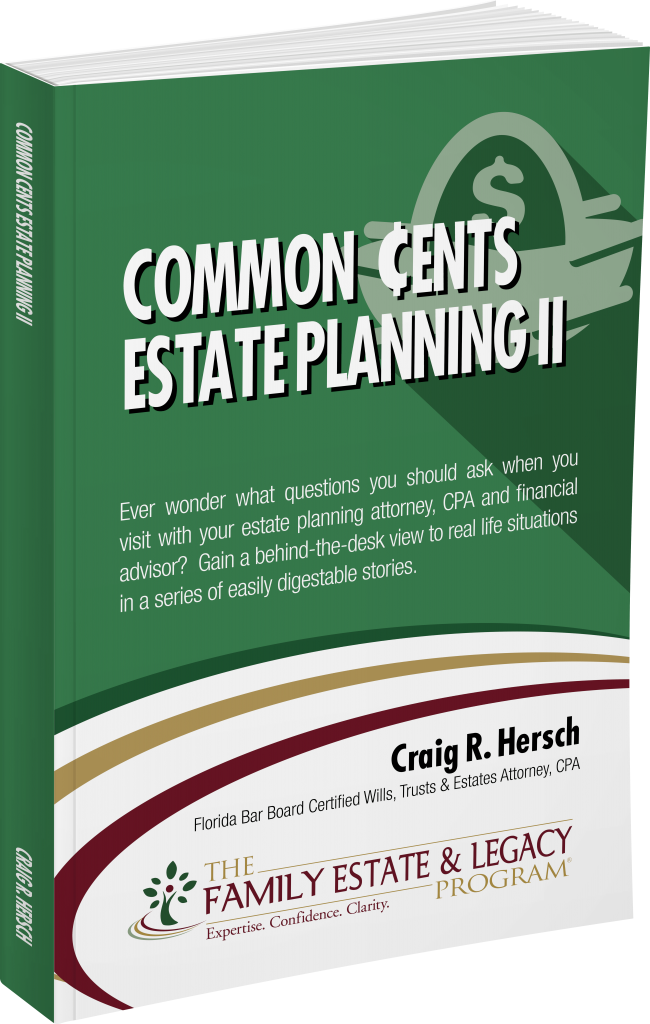What Are Your Goals?
While working with your legal team to update your plan, I suggest that you also consider adding three key ingredients that your plan may not already have:
- Protection
- Funding
- Maintenance
When I refer to “protection” I separate them into three components – protection for yourself, protection for your spouse, and protection for your beneficiaries such as your children and grandchildren. “Funding” speaks to having your assets owned in the right “basket”. If you never get around to transferring your assets into your revocable trust, you might as well not have a trust. “Maintenance” refers to keeping your legal documents up to date with the ever-changing estate, trust and tax laws, as well as with your personal and financial situation.
Ensuring that these three elements are functional inside of your estate plan should provide you and your loved ones with comfort and clarity.
Protection for Yourself
Many clients mistakenly believe that by creating a revocable living trust, they protect their assets from the claims of divorcing spouses, predators and creditors. This isn’t the case. When you transfer assets from your name into your revocable trust, you only change the form of ownership. Because you own the trust, the trust assets are still considered yours, therefore you can change the terms of the trust whenever you want, and you control the disposition of trust assets.
Revocable trusts use your social security number as the tax identification number, so there’s no separate income tax return to file as long as you are alive. All the income of the trust appears on your federal Form 1040 just as it always has.
Because assets inside of your trust remain legally yours, the trust does not shield you from liability.
CONSIDER THIS
This came to light when a client of my firm accidentally killed a motorcyclist while driving her car. A retiree, she had moved to cut expenses, limiting her automobile insurance coverage to 100/300/50, meaning she had coverage of $100,000 bodily injury liability insurance per person, $300,000 total bodily injury liability insurance per accident, and $50,000 property damage liability per accident.
She unfortunately also dropped her umbrella insurance policy. Umbrella insurance is extra liability insurance that stacks on top of your home, auto and boat coverage. It helps protect you from major claims and lawsuits. In today’s litigious age umbrella policies are critical to protect your assets and your future. A $2 million umbrella policy, for example, will provide additional coverage above the limits of your liability policies. Usually you must increase your home, auto, and boat coverage to the maximum limits when purchasing an umbrella policy. For most people, umbrella policies are very affordable.
Our client’s insurance wasn’t adequate to cover the losses associated with her accident. Much to her and her adult children’s surprise, this meant that her other assets, including those assets funded into her revocable trust, were at risk in the negligence lawsuits following the incident. The lesson to be learned is to carry adequate insurance, and even if you are retired it makes sense to carry an umbrella insurance policy.
Disability Protection
While your trust does not offer liability protection, it offers other types of protections for you. A well-drafted trust includes extensive disability provisions. Since most clients serve as their own trustee, the primary danger often relates to cognitive decline.
I can best illustrate this issue by relating another incident we saw in my office not too long ago. I received a call from one of my client’s adult children, “Kevin”.
CONSIDER THIS
“Craig,” he said, “I think we have an issue with Dad.”
“What’s that?” I asked.
“Well, I am down visiting from Michigan,” he began, “and when I arrived here yesterday I found a big pile of unopened mail on his kitchen table. There were unopened bank and brokerage statements and bills. I became worried and asked if I could open them up and see what was there.”
“I understand your worry,” I said. “Maybe we need to get a bill paying service.”
“I haven’t told you the worst part yet,” Kevin said. “When I opened his bank statement I found a $10,000 check written to his housekeeper. He clearly wrote out the whole check – it wasn’t written in anyone’s hand but his own, and the signature is his. But get this – when I asked him about it – and showed him the copy of the check – he didn’t remember it at all.”
“Do you think he may have said that to avoid telling you that he really wanted to give her the money? Maybe he’s lonely and got attached to her and felt generous.”
“No, I really don’t. Dad’s 93 and I’ve noticed him slipping. What do you think we ought to do?”
“Well, it’s probably time to remove him as his own trustee on the various accounts. You’re the successor trustee so we’ll begin the Transitional Event Process™ that we’ve built into his trust. We’ll see if your father wants to resign, or if he is resistant we need to take him to a neurologist to get a clear diagnosis on his condition. Meanwhile I’ll work to see if we can recover the money he gave the housekeeper.”
“Sounds like a plan,” Kevin said, somewhat relieved.
Don’t take it for granted that your estate plan contains the proper disability protections we used in my client’s case. Many trusts contain inadequate provisions to effectively deal with this type of situation.
Defining Disability
First, how is disability defined? Many trusts require a physician to sign a statement that would remove the client from acting as his own trustee. I’ve had to alter how I draft these provisions because physicians are afraid of liability and won’t sign them. So instead I include a provision that requires a physician’s diagnosis along with something I refer to as a “disability panel.”
This disability panel can include any group of trusted relatives or friends whom the client believes will make informed decisions regarding the client’s cognitive decline. If this panel sees that the client could pose financial harm to himself (such as writing $10,000 checks to the housekeeper) then the panel can remove the client so that the next successor trustee steps in.
Sometimes clients will express concern that their disability panel will remove them even though they are still capable to continue on as their own trustee. Anecdotally I’ll tell you during my entire career to date (more than 27 years) I can’t recall that ever occurring. I can, however recall several instances where the family suspected a problem and waited too long to make the change. Further, we make it clear in the trust instrument that although the successor trustee is serving, so long as the client is alive he is the primary beneficiary and the trust assets are not to be used for the ultimate beneficiaries until the client has passed away.
There are related issues to consider, such as when a client is financially supporting someone else, or is making gifts to his loved ones for medical or educational expenses. In those instances, it’s important to include provisions allowing the successor trustee to continue on as the client would have, even though the client is no longer capable of making those decisions.
Giving Your Successor Trustee Help
Another protection for the client that can and should be drafted into the trust instrument concerns the ability of the successor trustee to enlist help when they need it.
CONSIDER THIS
An example of this is when you name your daughter Becky to serve as your successor trustee. Let’s say that Becky is married with two children along with working in her career. If you were to suddenly need her to step in and serve as your trustee, Becky may be unprepared to take on a host of important responsibilities including writing your checks, paying bills, ensuring money is moved into the proper accounts to do so, watching over your investments, and filing your tax returns. Becky could most likely use some help. So your trust can allow her to appoint agents, or even name a co-trustee temporarily. While most trusts already provide that the trustee can employ professional agents, I don’t see many that allow someone like Becky to hire and fire co-trustees.
The reason Becky may want a co-trustee and not an agent rests with the amount of liability and responsibility she can transfer to another party, such as a bank or financial firm. Sharing the responsibility while remaining control and oversight, along with the ability to hire and fire the co-trustee could be an important power you would want to serve as a protective devise in the event of your incapacity.
Protection for Surviving Spouse
Protecting yourself isn’t the only thing that your trust can and should do. Another consideration is to protect the inheritance you leave your surviving spouse. Unlike the trust you create for yourself, it is possible to protect what you leave your spouse against predators, creditors, bad decisions and a variety of other dangers.
One of the most significant decisions you and your spouse will make together is the choice of who your successor trustee will be. Spouses will usually name each other. But is that always the wisest choice?
If your spouse has no experience managing money and you’ve been a do-it-yourselfer, then you may be setting her up for some big problems. She’s likely to search for a financial planner. Who knows whether she ends up with a quality professional who only has her best interests at heart? Wouldn’t it be wise to also name a successor co-trustee with her in the document so that is one less decision she would have to make in a time of crisis?
Protecting Inheritance from Remarriage
If that isn’t an issue – what about protecting your surviving spouse from remarriage troubles? One of the PowerPoint slides in my presentation to prospective clients on this issue shows a picture of J. Howard Marshall and Anna Nicole Smith.
Most people know that story. The Texas multi-millionaire who became infatuated with a lady he met at a Houston strip club, marrying her. We all know how that story played out.
Most of us, even those in second marriage situations, hope that our hard-earned estate will benefit our spouse, but then revert to our children and grandchildren when our spouse dies. With Mr. Marshall, his new wife was considerably younger than his children. Even if he created a marital trust for her lifetime, by the time she would be expected to pass away his children also may not likely be around to enjoy any of their inheritance. As it turns out, Anna Nicole died young. Her drug-addict son was in on her bounty and he died young from an overdose.
Blended Family Issues
While the Marshall/Nicole-Smith example is not all that common, there remain a host of very legitimate issues in blended family situations. When a surviving spouse is not the parent of the deceased’s children, tying them together through the use of marital trusts can be problematic.
Who is the trustee of the marital trust going to be? If it is the spouse, what if he does whatever he wants and doesn’t let the children know? The spouse has reason to do this as he wears two hats. The first hat is supposed to be as an impartial trustee while the second hat is that of a beneficiary. Those two hats have an inherent conflict of interest.
This doesn’t mean you shouldn’t name your spouse as your successor trustee. What I’m pointing out is that much thought should go into that process to protect your intent as to how you would like to take care of your surviving spouse, and what specifically you’d like to leave your children and when.
If, for example, you want your spouse to be the highest priority, even if your trust could be exhausted taking care of her for the rest of her life, then it is important that the trust instrument precisely say so. Without language in the trust stipulating what your intent is, it is left to judges and others to decide. Without clear direction, the trustee, whoever that is, has a legal duty to balance the interests both of the lifetime income beneficiary (typically the surviving spouse) against the remainder beneficiaries (those who get what’s left after the surviving spouse dies).
Accounting to the Children
There are even other issues you want to protect your spouse from. One example is an accounting requirement to the remainder beneficiaries.
Most state laws, including Florida, require the trustee of a testamentary (after death) trust, such as a marital trust, to account to the remainder beneficiaries (often the children) what will happen in the trust each year. Having a will instead of a trust doesn’t circumvent this problem as wills also create testamentary trusts for the surviving spouse.
An accounting opens with the balance at the beginning of the year, discloses capital gains and losses realized, income received, distributions made (usually to the surviving spouse), expenses paid, significant transactions and ending balance.
Most of my clients don’t want their surviving spouse to live with this requirement. There are legal means to avoid it, but they must be drafted into the will or trust itself. Failure to do so could subject the surviving spouse to financial scrutiny for the rest of his or her life.
These are just a few of the issues that clients should consider to protect their surviving spouse. The facts of your particular situation will reveal what protections and therefore which steps to consider for your spouse.
Protecting Children and Grandchildren
Most wills and trusts I review from my new clients seem, at the surviving spouse’s death, to distribute everything outright to the children, unless they are young, in which case the assets are held in trust until the children attain a certain age, such as 30 or 40 before being distributed outright.
I believe that when this happens you’ve missed a major opportunity in the estate plan. Allow me to explain what I mean.
Protecting Spendthrift Beneficiaries
One of the most common concerns raised by my clients in my conference room centers on whether their children will squander or waste their inheritance. This concern has merit. A Key Private Bank study found that the average inheritance is fully consumed within 17 months. This study included Inherited IRA accounts that could have been stretched out over the lifetime of the beneficiary, but were completely withdrawn, resulting in the early recognition of income (and corresponding payment of income tax) and losing tax-deferred growth.
Protection from Creditors
Protecting from spendthrift tendencies is not the only danger. Proactively protecting your children from creditors could be another issue. When the real estate market crashed in 2007, for example, several of my client’s adult children suffered through foreclosure proceedings when they purchased homes at the height of the market and then lost their jobs. When a foreclosure sale occurs on the steps of the courthouse, there are often deficiencies between the amount of the loan outstanding and the sales price. This results in a deficiency judgment against the borrower that accrues interest over time.
Beneficiaries who inherit assets outright when they have an outstanding deficiency judgment (or any other judgment) against them risk losing the inheritance to the judgment creditor. There are all kinds of judgments that could linger for years against your intended beneficiaries, including student loan debt, business deals gone sour, alimony, child support, negligence and malpractice cases just to name a few.
To protect your loved ones’ inheritance from these dangers isn’t all that difficult, only a change of your mindset from leaving the inheritance outright to leaving it in a continuing trust, otherwise known as a “testamentary”, or after-death trust.
Tailor to Specific Needs
Testamentary trust provisions are built inside of your revocable living trust and spring into effect upon your death, or upon the death of the survivor of you and your spouse depending upon the terms. There is no “boilerplate” or “one-size-fits-all” trust. A testamentary trust may be drafted to meet your specific goals and concerns.
If, for example, a spendthrift beneficiary is your concern, then you are likely to name a third-party trustee to manage the investments and consider the distributions to that beneficiary. A third party trustee might be an investment firm, bank or trust company, an attorney, CPA, or other trusted professional, a competent friend or other family member.
Don’t Set Family Up for Conflict
Be careful that you do not name a son or daughter to act as a gatekeeper to one (or more) of their siblings’ inheritance. That is a recipe for disaster. I explore this and related topics more in depth in my Selecting Your Trustee book.
CONSIDER THIS
Assume that you named your son Bob to act as trustee over his sister Jennifer’s trust share. Jennifer asks Bob “I need $40,000.”
Bob asks, “Why do you need this money?”
“What’s it your business?” Jennifer replies.
“Because Mom and Dad selected me as your trustee and I need to know as I have a duty to protect your inheritance from you spending it away.”
“I just need it, okay?” Jennifer says in an agitated voice.
“Well then, no, I’m not distributing it to you!” Bob says.
You can see how these situations can put a strain on the relationship. Don’t do it to your kids.
Liberal or Conservative Distribution Provisions
When you direct your attorney to draft these trusts you leave behind for your children and grandchildren, you’ll want to discuss how tight the purse strings might be. You can direct, for example, that the trust annually earned income (the interest and dividends), may be a required distribution to the spendthrift beneficiary, but it doesn’t have to be. The testamentary trust could be written to allow for discretionary distributions, meaning that the beneficiary must request a distribution and justify the reason for it.
You can have the testamentary trust written to direct the trustee to be liberal with distributions or more tight-fisted. In one situation I had a client who wanted the inheritance to primarily benefit her daughter’s retirement years. She therefore had me draft the testamentary trust to only distribute for educational purposes, or for health or support emergencies until her daughter attains age 65. Until that time any extraordinary distribution requests had to be fully justified, and the daughter had to show that she had no other income or assets of her own to satisfy the request. Once the daughter attains age 65, however, the provisions of the trust loosen, allowing the trustee to even make distributions for travel, clothing and other enjoyable pursuits.
More Reasons for Testamentary Trusts
Continuing testamentary trusts are even a great idea for those beneficiaries who do not need a gatekeeper, and who may be superb at managing their own money. No one knows what the future brings. Divorce[1], bad business deals, a malpractice case or a host of other dangers could threaten a child’s inheritance. Further, for those übersuccessful beneficiaries, outright inheritances could only add to existing estate tax issues. Leaving your daughter, the neurosurgeon your wealth might only create additional estate taxes when she dies.
How about the circumstance where you leave wealth to your son, but upon his death he leaves everything he owns to his wife who later remarries? Here the family wealth you have accumulated may not end up with your grandchildren, rather it could all end up benefiting a family tree you don’t even know.
In all of these instances, building a continuing testamentary trust for your beneficiaries will serve to protect the inheritance from these dangers. Instead of naming a third-party trustee gatekeeper, however, you can name the beneficiary as his own trustee. So long as discretionary distributions are limited to provide for “health, education, maintenance, and support,” even if the beneficiary controls the investment and distribution provisions, the assets should remain better protected and outside of her estate for federal estate tax purposes.
Separate Shares vs. Pooled
When you build a testamentary trust for your beneficiaries, you should direct your attorney to draft a separate trust share for each beneficiary as opposed to having a pooled trust for all. Your beneficiaries are likely to have separate goals, concerns, assets, risk tolerance, need for income and so on. Upon your death, or the death of the survivor of you and your spouse, the assets will be divided proportionately into the separate trust shares, with each being governed separately from that point forward.
Opportunity Lost
Some clients say “I don’t want to go through the hassle of creating a testamentary trust inside of my trust and having my children deal with those complexities. If they want a trust, they can create one like I am right now and put their assets into that trust.” Allow me to address both points.
First, while each testamentary trust will have its own separate tax identification number and therefore need to file a separate tax return, governing the trust shouldn’t be all that difficult. Your attorney can provide the initial instructions, with your CPA or tax return preparer doing their job annually. Trust formalities are important, but rarely pose considerable problems.
Second, your children can’t easily create protected trusts for themselves as you can for them. That ability, for the most part, dies with you. If you haven’t created protected trusts inside of your own estate plan, then your family will have lost out on that opportunity. Recall a few pages ago where I informed that your revocable trust offers no protections for yourself. The same holds true when your children create their own revocable trust.
Giving Children Power to Appoint
Finally, clients sometimes object to testamentary trusts as “reaching out from the grave.” While a valid concern, there are provisions you can include which mitigate that entirely. You can give your children and grandchildren (and any other beneficiary) a “power of appointment” over their trust share at their death. What this means is that the current beneficiary can alter the default beneficiaries you name for each trust share (normally down the generational line).
[1] Note: Recent case law subjects trust distributions to alimony and child support claims. Trustees may be able to frustrate claimants by accumulating income inside of the trust. These are issues that should be thoroughly discussed with estate planning counsel during the planning stage.
CONSIDER THIS
An example of this is where you leave assets in trust for your son, Bob. On Bob’s death the assets are to be held and distributed to or for the benefit of Bob’s children, Cindy and Dan, who become the “default beneficiaries”. If nothing else happens, when Bob dies the trust share splits in two for Cindy and Dan.
You choose, however, to leave Bob a power of appointment so he can leave amounts to his spouse, Bonnie, or alter the proportions or amounts he leaves to his descendants, or he can even leave the entire amount to charity. Bob can exercise this power of appointment inside of his will or trust.
So what have you done when you left amounts in a testamentary trust for your children naming each child as the own trustee for his or her own share with a power of appointment to each child at their death? You have given your child the ability to control both the investment and distribution decisions related to his own inheritance along with the ability to also direct the inheritance upon his death. Sounds like an outright distribution doesn’t it? In effect, it is not that far off from an outright distribution, but it can provide the protections we reviewed here together.
KEY TAKEAWAYS
- Revocable trusts won’t protect you from your own liabilities. You should ensure that you have adequate insurance, including umbrella policies;
- Revocable trusts can, however, provide valuable protections in the event of your disability leaving you unable to manage your own financial affairs;
- Your trust can also be built to protect your loved ones such as your spouse, children and grandchildren. This is done through testamentary trusts built inside of your trust that spring into effect at your death;
- The opportunity to protect your loved ones is lost if you don’t have those provisions inside of your own documents; and
- There is no “one size fits all” provision that will work. The best trusts are drafted after carefully considering each family’s circumstances.
How Can We Help?
